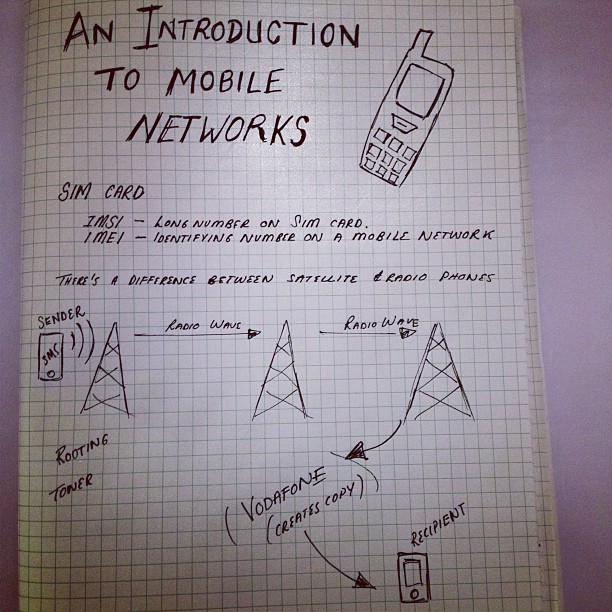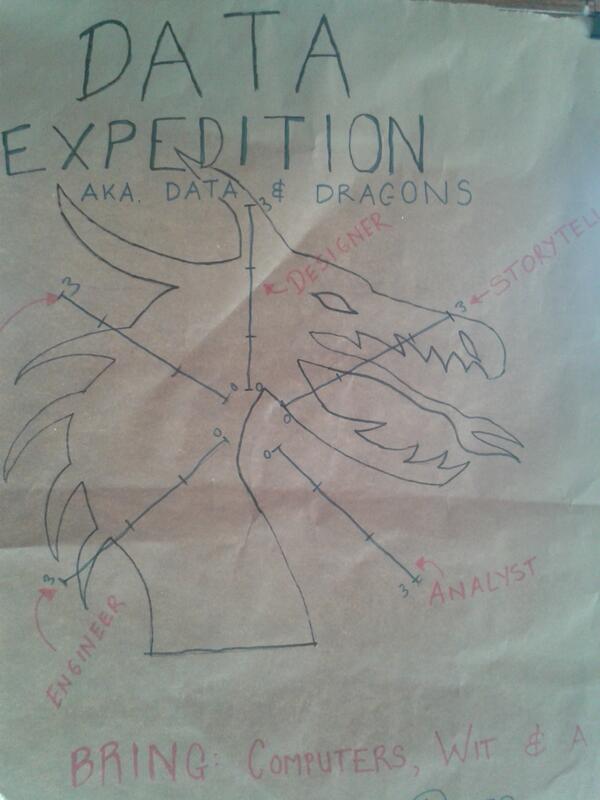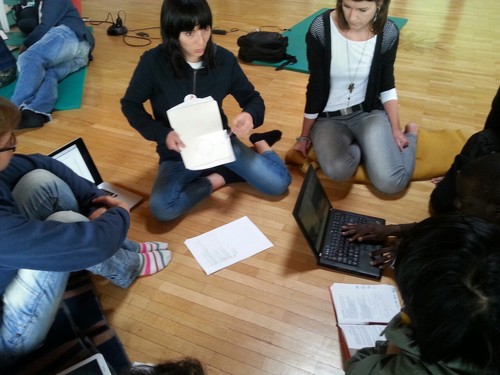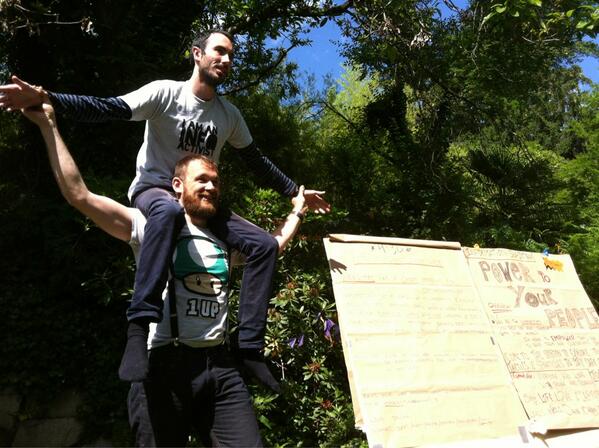Lab summaries
Each afternoon, campers chose a lab to join. Labs lasted three hours and provided time to get hands-on and practical with specific skills and approaches to working with information. The main four labs that ran all week are included, other labs covered
TECH AND TOOLS
Facilitators: Kaustubh Srikanth, Daniela Silva, Sam Smith, Sacha van Geffen
Supported by Smari McCarthy, Mart van Santen, Alix Dunn, Faith Bosworth
The Tech and Tools lab focused on hands-on learning and problem-solving, to address specific campers' specific needs. Starting with a 'Google Docs Rehab', the track looked at alternatives to popular proprietary, commercial collaboration systems like Google Docs/Drive and Dropbox. Then the group explored how to use popular, open-source web frameworks to build effective, usable and secure websites, and looked at best practices to plan and manage the life-cycle of a web project effectively.
Turning to mobile phones, the track evaluated different technologies and tactics we can use to successfully build mobile campaigns, and examined different ways of using mobiles to collect data effectively. Finally, the group learnt how to set up emergency internet, how radio signals work, and how to set up an internet connection even when you are in the middle of nowhere with no connectivity whatsoever, or if communications in a whole region get cut off.
DATA NINJAS
Facilitators: Ethan Roeder, Max Richman, Thejesh Singh, Nick Onyango

The Data Ninjas lab laid down the foundational concepts and techniques for working with and wrangling data. Starting with the Data Alchemy lab, the lab introduced magical tools to create 'clean data', and the group turned text data into structured data using spreadsheet software and regular expressions. The next day, participants learnt how to 'lie' with data. By working backward from an infographic, it became clear that many different stories can be read from the same set of data.
Later in the week, the lab became more participant driven, through matching up participants' needs and skills. Half the group focused on databases and the other on statistical analysis. On the last day, there was a Data Expedition. Using real-world problems that participants were struggling with, the lab split into teams to undertake data investigations, making the most of the mix of skills in the room and the fresh eyes and new perspectives from across the world. (see: http://schoolofdata.org/2013/07/08/data-expedition-quest-for-south-afric...)
VISUAL PRESENTATION
Facilitators: Angela Morelli,  Tom Halsor, Mikel Maron, Mushon Zer Aviv, Mohammed Gaber, Sarah Hipsley
Tom Halsor, Mikel Maron, Mushon Zer Aviv, Mohammed Gaber, Sarah Hipsley
What makes a visualisation ‘tick’? What is it that make its message understandable, clear, engaging, unforgettable? The aim of the Visual Presentation lab was to answer these questions through practical tasks, engaging discussions, short presentations, and skill-sharing.
The lab provided a fun-filled, creative space to experiment with different ways of presenting information, and to deepen understanding of the key concepts this entails. Beginning with the basic steps - gathering the data, identifying a message, creating a structure and choosing how to present it - campers created visualisations that ranged from diagrams to maps, from posters to performances.
INFORMATION JIU JITSU
Facilitators: Tactical Tech's Privacy & Expression Team, Alix Dunn, Niels ten Oever, Gillo Cutrupi
 The Information Jiu-Jitsu lab provided a one-stop shop to answer participants' questions on how to store and communicate their data and information securely. The lab looked at the kinds of data we generate on a daily basis and how we can store it securely. Participants mapped out supporters and adversaries, and analysed the information flows between the different groups to improve the way they work with information. During a session on anonymising data, the group discussed the kinds of data that may need to be anonymised, and explored ways to do that. On the final day the lab explored Prism and how it affects us. It also covered the question of how targeted malware spreads, and how it can be avoided. A Crypto Lab ran throughout the week to teach specific tools on demand.
The Information Jiu-Jitsu lab provided a one-stop shop to answer participants' questions on how to store and communicate their data and information securely. The lab looked at the kinds of data we generate on a daily basis and how we can store it securely. Participants mapped out supporters and adversaries, and analysed the information flows between the different groups to improve the way they work with information. During a session on anonymising data, the group discussed the kinds of data that may need to be anonymised, and explored ways to do that. On the final day the lab explored Prism and how it affects us. It also covered the question of how targeted malware spreads, and how it can be avoided. A Crypto Lab ran throughout the week to teach specific tools on demand.
NEW LABS
The Camp had a responsive and flexible agenda that adapted itself to the needs – and expertise -- of participants. Given that there were a lot of participants who are extremely skilled and experienced, we invited them to suggest new labs. Here are some of the 'new labs' that emerged:
- Stake your claim! Insights on how to communicate effectively with policymakers to achieve influence – Lisa Quinn
- Crisis & Emergency Response Lab – Jenna Grafin Pracham, Hisham Almiraat
- The Influence Lab – Rahul Bhargava
- Making your video matter – Andrew Lowenthal, Nancy Schwartzman , Prakkash Sinnappan
- More mapping – Mikel Maron, Sajjad Anwar
- The dark art of proposal writing – Stephanie Hankey

